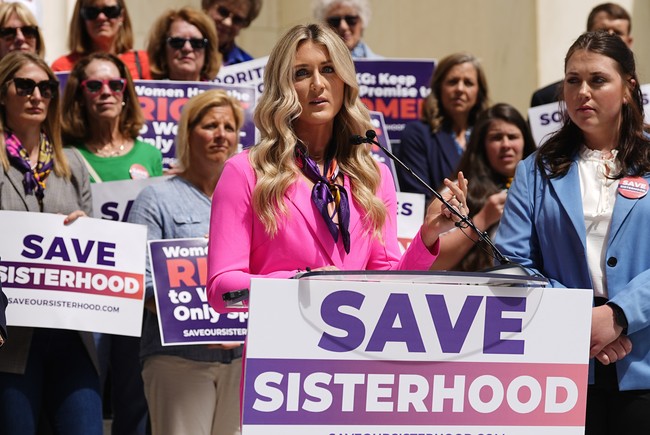Nearly 1,490 people have been collared on Jan. 6-related charges, with arrests in the first seven months of 2024 running at a significantly higher rate than in 2023 and 2022, the U.S. Department of Justice reported Aug. 6.
Since Jan. 6, 2021, the FBI has arrested 1,488 people — including 223 so far in 2024, according to the DOJ’s 43-month Jan. 6 update.
The year-to-date arrest total is up 43% from the first seven months of 2023 and 65% higher than in the first seven months of 2022, according to DOJ statistics.
The most common charge overall is entering and remaining in a restricted federal building or grounds, lodged against 1,417 people, including 171 accused of doing so with a deadly or dangerous weapon. Weapons have ranged from knives, bats, and flagpoles to pepper spray and motorcycle gloves.
Nearly 550 people were charged with assaulting, resisting, or impeding certain officers or employees, including 163 with a dangerous weapon or causing serious bodily injury, the report said.
Of the 944 people who received sentences, 60% were given incarceration.
Of the 894 people who pleaded guilty, 288 (32.2%) were for felonies and 606 (67.7%) were for misdemeanors.
Of those pleading guilty to felonies, 146 pleaded guilty to assaulting law enforcement officers and 76 pleaded guilty to feloniously obstructing, impeding, or interfering with law enforcement during a civil disorder. Of these 222 defendants, 180 were sentenced to prison terms as long as 151 months.
Of the 944 people who had their cases adjudicated and received sentences, 60% were given incarceration, 18% received home detention, and 3.3% received a combination of the two, the report said.
Some 186 defendants were found guilty at contested trials, including three in District of Columbia Superior Court. Another 37 defendants were convicted based on an agreed-upon set of facts, the report said.
For the second month, the DOJ report no longer included full detail on its novel use of a white-collar crime statute to prosecute protesters with a 20-year felony. That charge was lodged for allegedly obstructing an “official proceeding”: Congress’ largely ceremonial meeting to count Electoral College ballots from the 2020 presidential election.
In its ruling in the landmark case Fischer v. United States, the U.S. Supreme Court on June 28 set strict standards for use of the 2002 Enron-era law, saying prosecutors could use the statute only if a defendant “impaired the availability or integrity for use in an official proceeding of records, documents, objects, or … other things used in the proceeding, or attempted to do so.”
Although 355 defendants have been charged with violations of 18 U.S. Code §1512(c)(2), the DOJ is reporting only on the 259 defendants who were still charged as of the date of the Supreme Court ruling.
The DOJ said of those 259 defendants, 133 have been sentenced. Of those sentenced, 57% were convicted of §1512(c)(2) and other felonies.
The 30% who were convicted of §1512(c)(2) and no other felonies received probation, completed their sentences, or have been released pending the outcome of the Fischer case, the DOJ said.
District of Columbia federal courts have received a swarm of filings seeking to overturn convictions, shorten sentences, and release defendants from prison terms or probation since the Supreme Court’s Fischer ruling.
Like Blaze News? Bypass the censors, sign up for our newsletters, and get stories like this direct to your inbox. Sign up here!
Read the full article here





![Adam Carolla Says Wildfires and ‘9 Angry Lesbians’ Will Red-Pill Victims [WATCH] Adam Carolla Says Wildfires and ‘9 Angry Lesbians’ Will Red-Pill Victims [WATCH]](https://www.lifezette.com/wp-content/uploads/2025/01/2025.01.09-09.00-lifezette-67803906df393.jpg)




